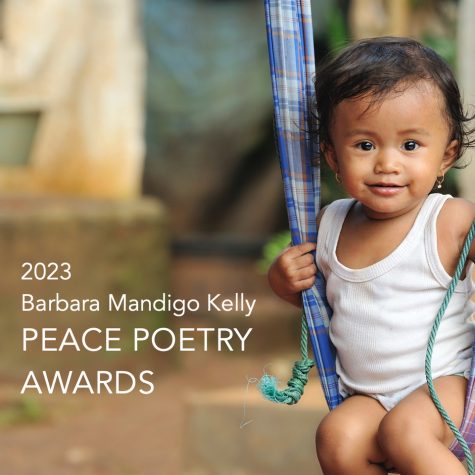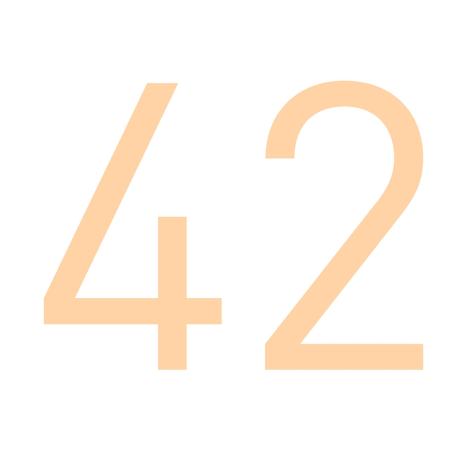Write the World: Novel Writing Competition
11/8 – Submit for Expert Review; 11/12 – Reviews returned to Writers; 11/16 – Final Submissions Due; 11/26 – Winners Announced

https://writetheworld.com/competitions/160
Dust it off and get it published!
Have you ever wanted to experience the world from a different perspective than your own? Through the wizened eyes of an elder, or the fresh vantage of a young child? From the snowy peaks of a northern land, or the salty shoals of a fishing village? Within a bustling city, or amongst a sprawling family? Writing a novel is about shedding your identity and inhabiting the experiences of an imagined character. But a novel also requires looking inward—drawing upon your own experience and interior life to find elements of the human condition that you can offer to your fictional characters. This month, explore the human experience through writing, and share an excerpt with us.
Writing Guidelines
CHARACTER
Novels hinge on well-developed characters. All the rest of it—the plot, the setting, the language—mean little if the reader doesn’t experience the fictional world through a character that feels real and relatable.
- Make your characters three dimensional. Rather than thinking of your characters as either “good” or “bad,” or protagonists or antagonists, consider every character to have both flaws and gifts… just like real people… just like you and me.
- Give your characters idiosyncrasies. Does your character have a habit of pulling on his beard when he’s nervous? Does she absent-mindedly feed the cat morsels off her plate? Particular details not only reveal personality, but they also make a character come to life.
- Reveal internal and external worlds. Sometimes, particularly if the events in the narrative are exciting, it’s easy to forget that what’s happening outside of the character is only half the story. The inner world can be just as rich and just as telling, if not more so. What is your character thinking? Imagining? Feeling? What are they worried about? Preoccupied by? What do they wish for?
You can find more excellent character tips in our Ask Michael blog post.
PLOT
At its most basic level, the plot refers to the sequence of events that make up the story you’re telling in your novel. But the writer is not simply recording every experience a character had in chronological order. Instead, writes Janet Burroway, “a plot is a series of events deliberately arranged so as to reveal their dramatic, thematic, and emotional significance.” It’s up to you, dear writers, to pick and choose what happens in the life you’re imagining, what pieces to include in your novel, and in what order. You’ve likely heard of the narrative arc: the progression of a story as it moves from introduction to inciting incident (the first hint of a problem) to rising action to climax to falling action to resolution. Well, this one-size-fits-all sequence makes it seem like all novels follow the same path. Not true! We much prefer NaNoWriMo’s metaphor of a rollercoaster: “As you probably know, not all rollercoasters have the same track. They all have different hills and drops, twists and turns, and loops and tunnels. The same goes for novels…. Sometimes they begin with the inciting incident or work backwards from the resolution to the beginning. Novels are filled with flashbacks, flash-forwards, and unexpected plot twists.”
SETTING
For almost all fiction, the setting helps the reader to enter the narrative. With the first few words of the novel, the reader begins to form a mental picture—who the characters are, how they sound, where they are. The details of place allow the reader to imagine the characters in action. How convincingly a writer captures a place is also one of the ways that she builds credibility with the reader. Do your research: If your story takes place on the coast of Ecuador, know the names of the trees, which snakes worry the farmers, and when the wet season sweeps in. Setting can also provide a sense of mood. A description of place can be gloomy and flat or buoyant and loud. And one more thought, dear writers: because we are a global community, your readership is global, too! This means your setting doesn’t need to be “exotic” to be interesting. In fact, describing the seemingly mundane could be quite otherworldly to one of your readers. Dogwood stems turning neon orange in winter! A river the color of chocolate milk! Sandstorms in August!
FINAL WORD
Dear writers, we won’t pretend otherwise: writing a novel is hard work. It’s a long, arduous road from beginning to end, which is why novel writers need all the camaraderie and inspiration they can get. And that means helping each other when the going gets tough—reaching out and offering a kind word or helpful suggestion on an early draft. “Writing is better when it’s together”, we like to say. If you’re looking for a review, someone else is too…pay it forward!
Who is Eligible?
Young writers ages 13-18
Length
600-1000 words
Guest Judge
Laura Wood is the winner of the Montegrappa Scholastic Prize for New Children’s Writing. Her first YA novel A Sky Painted Gold was shortlisted for the 2019 YA Book Prize, 2018 BAMB Readers’ Awards and the 2019 Romantic Novelists’ Association’s Awards.
She is also the author of the critically acclaimed Vote for Effie and the Poppy Pym series for younger readers. Her latest book for YA readers, A Single Thread of Moonlight, is out now.
Prizes
- Best Entry: $100 (Our guest judge’s commentary on the winning piece, and an interview with the author will be featured on Write the World’s blog)
- Runner up: $50 (Our guest judge’s commentary on the piece will be featured on Write the World’s blog)
- Best Peer Review: $50 (Our guest judge’s commentary on the best peer review and an interview with the reviewer will be featured on Write the World’s blog)
What’s Different about Write the World Competitions?
- Prizes: The winning entrant will receive $100, and the runner-up and best peer-reviewer will receive $50.
- Professional Recognition: The winning entry, plus the runner-up and best peer review, will be featured on our blog, with commentary from our guest judge.
- Expert Review: Submit your draft by Monday, November 8, and get feedback from our team of experts—authors, writing teachers, and educational professionals.
WtW Workshops!
Looking to take your writing skills to the next level while learning from professional authors, poets, and educators? Check out Write the World’s Global Writing Workshops program—this month, we are hosting a workshop for 13 – 19 year olds in how to Write Poetry for Children!
Upcoming Competition
Our Creative Nonfiction Competition opens Monday, November 22nd.
Stay tuned for more details!
Is previously published work eligible?
Our monthly competitions are designed to get you writing across a range of genres throughout the year, so we encourage you to write a new work for each competition, but we will also accept work that has been previously shared with a small, local audience (for instance, a piece that was published in a school journal).
How to Enter
- If you haven’t yet, sign up for a free account for Write the World as a young writer here.
- Hit the “Start Writing” button above!
- Draft your entry! Hit “Save” to return to it later.
- The first 100 people to submit a draft will receive an in-depth review from one of our Expert Reviewers—authors, writing teachers, and educational professionals—that you can use to revise your final entry. The “Submit for Expert Review” button will be clickable if slots are still available—click it to have your draft reviewed. (Note: you can still enter the competition if you haven’t received or don’t want to receive an Expert Review!)
- When you are ready to submit your entry, hit the “Submit as Final” button (You can revise, re-publish, and mark any version as your “final submission” until the deadline.)
- Only one entry per person, please.
Writing Guidelines
The power of our writing goes hand in hand with responsibility. Make sure that you’re supporting other people through your writing rather than pulling them down. The types of content that will be removed from the site include, but are not limited to:
- Anything that may be deemed hurtful, defamatory or discriminatory in nature.
- Anything deemed explicit or gratuitously violent.
- Anything referencing self-harm.
- Any commercial posts and/or spam.
- Plagiarism (see more at our Writing Guidelines page).
- Personal contact information—including usernames on social media or other platforms. This is to protect the privacy of our members.
- Links to any external websites, with the exception of links to citations as part of an essay, or including links to illustrations or audio as part of a Write the World competition or prompt.
If a writer posts content that violates our terms or goes against our guidelines, we will remove the post and contact the writer when necessary. Please refer to our Writing Guidelines and site’s terms for further information.
*Note*
All final submissions will automatically be published on Write the World’s website. Visit https://writetheworld.com/for_young_writers#competitions_anchor for more information.




